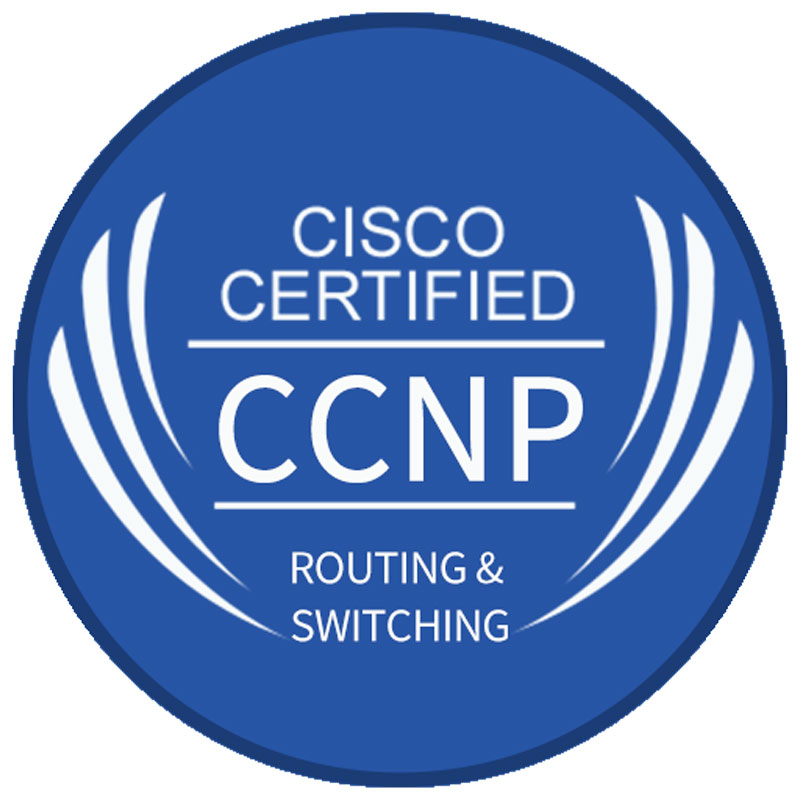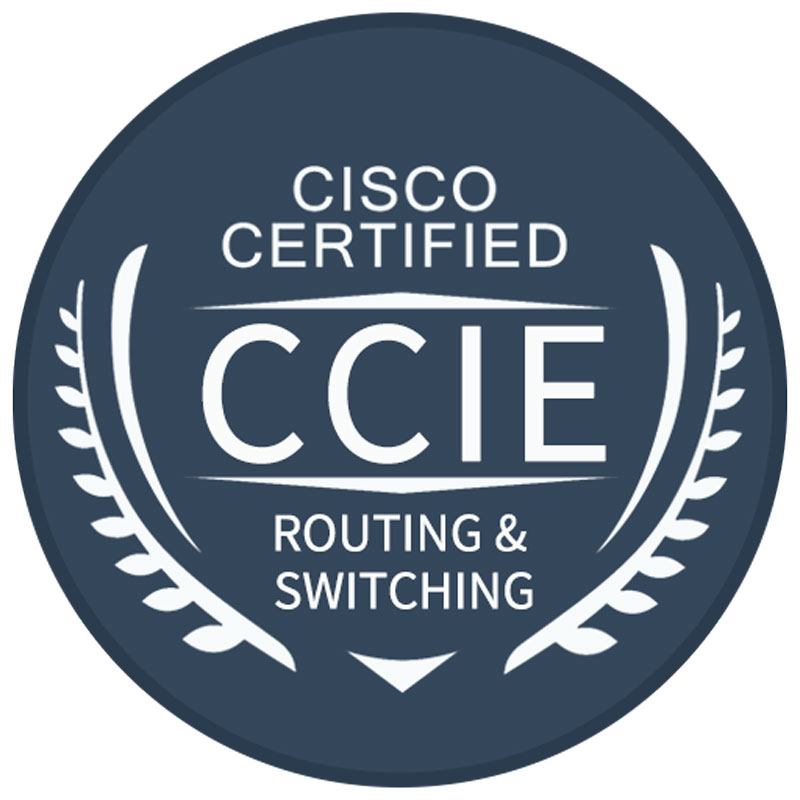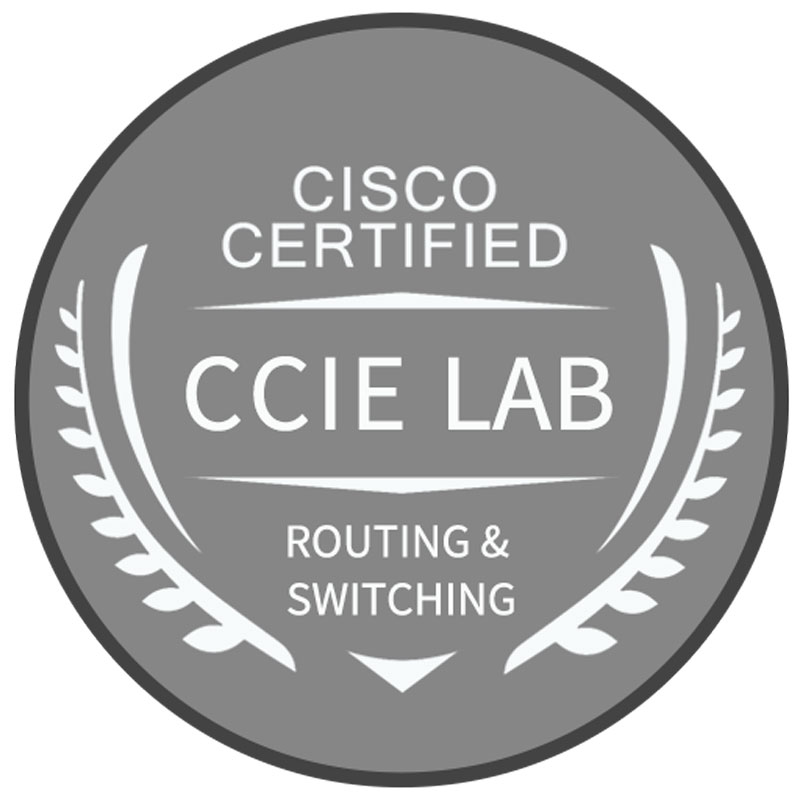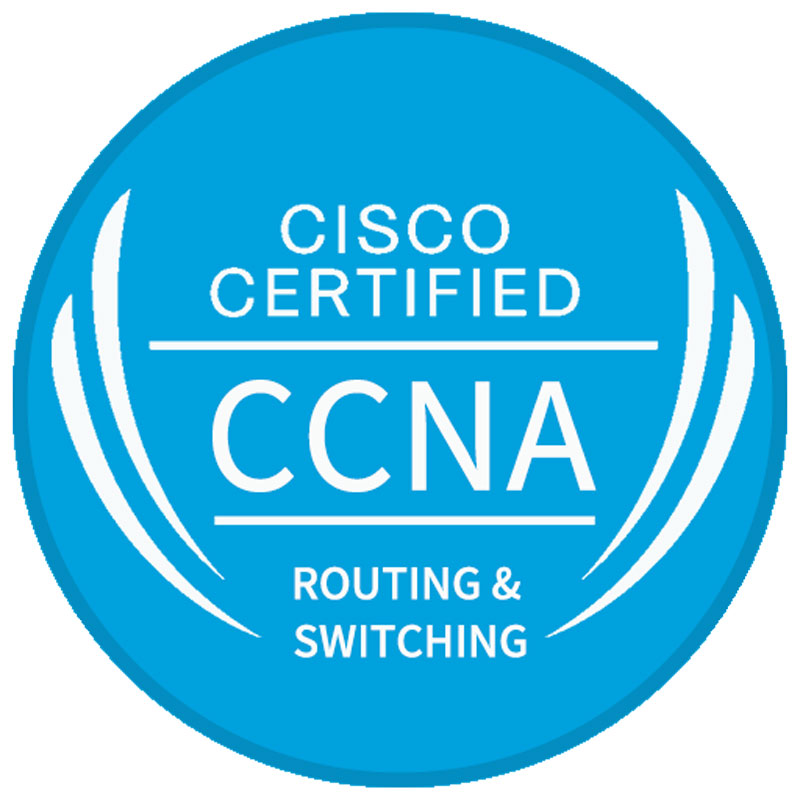ccnp 300-115 exam fees
-
- 5050 Reviews
By default, this database is dynamic, which means that when the switch is restarted, all entries in the database are lost. The result of this event may cause network disruption. So we can store this database as a file, this is the DHCP snooping database agent . The configuration command is very simple, global command:
If an interface is in the flooding state, it will bring a lot of upadate and witdhdrawn messages to the network . Therefore, for a flipped interface, no bgp fast-external-fallover is recommended . After the interface is shut down, the BGP session and neighbor relationship will remain until
No auto-summary
Router (config) #server dhcp turn on DHCP services. By default, the Cisco IOS DHCP server and relay agent features are enabled on your router
AS_PATH type 1 : AS_SET detailed
Aa:nn additive internet local-AS
Various types of ports of a Layer 3 switch
Floating static route 23
The basic configuration is as follows:
The default keyword has a lower priority than the detail route.
?
AS_Path
Therefore, the role of the no-prepend keyword is: Do not prepend local-as to updates from ebgp peers . If you advertise the route to the EBGP neighbor of the primary AS , the secondary AS number is not attached .
Ip route 3.3.3.0 255.255.255.0 serial 0/1
Both R1 and R2 inject 100.0.1.0 and 100.0.2.0 into BGP using network . We look R5 are BGP table:
In half-duplex mode, the CSMA/CD access method is adopted .
MAC address is 0007.b400.0102 (learnt) Owner ID is cc01.043c.0000
Ip community-list 11 permit no-export route-map test permit 10
In order to verify this rule, we first maintain the basic BGP configuration. Introduce 100.0 by using network on R1
After SW3 receives this message, it knows that SW2 no longer has vlan10 users, and no longer needs vlan10 traffic, so it will trim vlan10 on its own FA0/22 port :
0 ?
The configuration of SW2 is as follows:
SW3 is small), so the interface connected to SW2 on SW4 wins and becomes RP .
200 i
Paths: (2 available, best #1, table Default-IP-Routing-Table) Flag: 0x820
Neighbor 10.1.13.3 route-map test out
Fa0/20
Length of the suboption type
...
100
verification
*time* Nov 05 2011 07:52 PM
*>i10.1.23.0/24
At this point, the direct connection is re-released on R2 , and it is found that 1.1.1.0 has not been re-released into RIP.
Interface vlan 10
Dynamic routing protocol port number or protocol number
Router(config-router)# passive-interface default Router(config-router)# no passive-interface int- type int-num
Of course it includes information such as object MAC address , contents of the destination interface . In this case we need only one data stream (Flow) in the first packet do process
This global configuration command enables PBR to take effect on locally originated traffic.
Forwarding delay
192.168.12.2/24
Next, at R1 onto 30.30.30.0/24 to ping 10 th ICMP packets, can then R2 see the corresponding traffic on:
For example, R1 redistributed into direct on the OSPF , with out distribution list can be filtered out direction 1.1.1.0 this external routes. But R1 redistributed incoming routing, if R2 with the out distribution lists direction tried to block R3 accepted routes or LSA , you can not, because this is not a local external routes originating.
So in fact, it is very simple, as long as the prefix and mask part of the route, respectively, use the source and destination parts of the ACL to match.
VLAN IDs of the allowed VLANs when this port is in trunking mode add VLANs to the current list
VTP Traps Generation
100 i
Cisco Express Forwarding
Start a TCP connection. Prepare enough resources when BGP is enabled
Neighbor 5.5.5.5 update-source Loopback0
Half-duplex MAC : The physical layer operating mode provides access when half-duplex.
In this way, the entire network is interconnected. Note that when redistributing routes to OSPF , redistribute rip subnets , this subnets
?
RFC1724
Assigning community 100:11 to route 11.11.11.0/24 on R1 and passing it to R2 , then R1 is configured as follows:
20 .
Command summary 81
Configure on R2 as follows:
Router(config-router)# passive-interface int- type int-num
Test purpose: VLAN information transfer
Metric value: The overhead of the router to reach the destination is an integer between 0 and 15 .
This global configuration command enables PBR to take effect on locally originated traffic.
Origin IGP, metric 0, localpref 100, valid, external, multipath , best
In the BGP process: neighbor xxx default-originate to pass the default route to a specific neighbor. This configuration does not require a default route in the routing table. A bit like OSPF 's default-originate always
Set ip next-hop { ip-address [...ip-address] | recursive ip-address }
In the above figure, we inject OSPF routes into RIP . Traditionally, you can only set metrics on all incoming routes . However, with route-map , we can associate a defined one when configuring re-issue commands. A good route-map , in the route-map , we can create different properties or actions for different routes by creating multiple serial number statements.
Match ip address prefix-list 100
If multiple path originating router IDs or router IDs are the same, then the shortest path of the Cluster-List is preferred .
R4#sh ip b
Mechanism overview
Family Identifier )
Ip route 10.1.1.0 255.255.255.0 10.1.254.1
--------------- 192.168.10.1
Consider the case where R2 is RR , and R4 and R5 respectively declare loop
Knowledge review
External EIGRP
There are 2 forwarders (1 active)
Ip arp inspection vlan 100 logging acl-match none
Received WAS, IT A SENDS that the LAN containing the BPDU DATE The up-to-Port Information Stored for that. the In the this Way, the inferior IS Discarded Information, and Superior Information The IS ON propagated Network. "
At 1 o'clock, it can be considered that this address represents a broadcast address or a multicast address in the Ethernet, or represents a broadcast address or a function address in TR and FDDI . The next bit is the G/L bit (also known as U/L, where U is global). When this bit is set to 0 , it represents a global management address.
Let's look at the following example:
Note: If it is an EIGRP environment, you need to implement unicast update, then the route update interface can not be PASSIVE (this is different from RIP ), directly use the neighbor command to specify the neighbor. If the interface is PASSIVE , even if the neighbor is manually specified , the EIGRP neighbor relationship cannot be established normally .
Ip prefix-list 1 seq 5 permit 1.1.1.0/24 route-map test permit 1
Port-security does not support the destination interface of SPAN
.
R4#show ip bgp 172.16.0.0
Route accurate summary algorithm
Neighbor 10.1.13.3 remote-as 345
Origin IGP, localpref 100, valid, external, best Community: 100:11 no-export
The incoming route is passed from the external AS . The NH is the EBGP peer that advertises the route , and the NH will follow the route to pass within the AS without change (unless a policy is made), always pointing to the next AS (advertise the route) the EBGP peer interfaces IP ).
Distance 100 192.168.12.1 0.0.0.0 1
10
If an interface is in the flooding state, it will bring a lot of upadate and witdhdrawn messages to the network . Therefore, for a flipped interface,ccnp 300-115 exam fees, no bgp fast-external-fallover is recommended . After the interface is shut down, the BGP session and neighbor relationship will remain until
Each update message describes only a single BGP route. This is because the BGP path attribute can only describe a single route.
Experimental verification
The federated AS number in AS_PATH is used to avoid loops within the federation
From the message we can see that the size of this IP packet is 1500 bytes.
The first 8 bits of the route must be exactly matched with the first 8 bits of 172.0.0.0 . The other bits do not care, and the mask length must be greater than 24. Note that here
Instead of choosing R3 ? This is determined according to the routing principle of BGP (see the BGP document of Red Tea Three Cups Zhu SIR ). Here, the final impact of routing is such a rule "preferred routing from EBGP neighbors (relative to IBGP neighbors) "), R2 is the EBGP neighbor of R5 , so it is preferred.
[Start fast exchange]
R1 and R3 , R2, and R5 establish an EBGP neighbor relationship.
length
BGP based policy accounting on input is disabled BGP based policy accounting on output is disabled Hardware idb is FastEthernet0/0
Gateway of last resort is 172.16.12.1 to network 192.168.1.0
Routing, accept updates.
UplinkFast
LocPrf
A BGP neighbor has an impact only on the router. It can be understood as a weight value. The larger the priority, the higher. The value is in the range 0-65535 .
Multi-vendor routing environment
BGP routing table entry for 100.100.100.0/24, version 3 Paths: (2 available, best #1, table Default-IP-Routing-Table) Multipath: eBGP
* i100.0.1.0/24
R3 and R4 , R4 and R5 establish IBGP neighbor relationships, and R3 R4 R5 uses LOOPBACK as the update source and refers to the neighbor .
Show run int | include bia can see all the MAC , the first MAC will be used by the spanning tree, which is the CPU 's MAC . Next is the MAC of each Ethernet interface .
Received WAS, IT A SENDS that the LAN containing the BPDU DATE The up-to-Port Information Stored for that. the In the this Way, the inferior IS Discarded Information, and Superior Information The IS ON propagated Network. "
Manual bindings are IP addresses that have been manually mapped to the MAC addresses of hosts that are found in the DHCP database. Manual bindings are stored in NVRAM on the DHCP server. Manual
R1#sh ip b
Ip route 1.1.1.0 255.255.255.0 serial 0/0
In Ethernet, multiple protocols can coexist simultaneously in a local area network. Therefore, setting the corresponding hexadecimal value in the Type field of Ethernet II provides a mechanism to support multi-protocol transmission in the LAN.
/ / Configure etherchannel , ID is 1 , the mode is desirable
The next outgoing interface of the route is the port of the match .
STP topology change
Bgp connected eigrp
The current status of the Port Status : Secure-up !! interface is up .
Ip default-network 172.16.3.0 becomes: ip route 172.16.0.0 255.255.0.0 172.16.3.0
(2) Declare the loop port 1.1.1.1224
As a result , there is no vlan10 user on SW2 , and sw2 will flood the message so that other switches know.
8 bits
2
The cost value is increased, so that the OSPF metric of R4 going to 3.3.3.3 route becomes larger. What happens?
Through MED affect route choice 18
Configuration and implementation
The route obtained by the BGP speaker from EBGP will be advertised to all its BGP neighbors (including EBGP and IBGP ).
Then all the 172 network segments on R1 and R2 are suppressed. At the same time, since the route-map test only matches the 1.0 and 2.0 network segments (in AS100 ), this summary route, AS_PATH only inherits AS100 , which is 300 100 ;
A static route to the host Milne is added to the ROO . The next hop is the E1 port of Kanga . The purpose is to pass the bridge that is often congested. But found that Kanga will be sent to the host
RIP update behavior
Set comm-list 1 delete
The prefix list contains the serial number, matching from the smallest
Configuration command: In interface mode, you must configure the interfaces on both ends of the link. After the completion, you can show ip rip database to view the routing details.
This feature is quite unstable and is not recommended.
EtherType
Router (config) #server dhcp turn on DHCP services. By default, the Cisco IOS DHCP server and relay agent features are enabled on your router
So R2 can ping through 3.3.3.3
3.3.3.3
Vlan 100
Neighbor R2 unsuppress-map test
For different routing protocols, the corresponding AD values are shown in the table below. This is a well-known convention:
Store the result of the CRC cyclic redundancy check
0 packets, 0 bytes switched through the prefix tmstats: external 0 packets, 0 bytes
10.1.23.2
Lab 3 : The access layer switch is inserted into option82 , and the upstream core switch also turns on dhcp snooping.
Of course, the link type of the interface can be modified by commands. In interface mode: spanning-tree link-type ?
Summary of 192.168.0.0/16 on R2
byte
Wherein SW1 is as follows:
By default, only the MED values of BGP routes from the same neighbor AS are compared , that is, if the two routes of the same destination are from different ASs , the MED value comparison is not performed . MED only affects the traffic between directly connected autonomous systems, and does not pass through the AS . The smaller the MED, the higher the priority.
The message contains:
R1(config-router)# redistribute connected subnets
Access-list 1 permit 172.16.1.0 route-map unsupp permit 10 match ip address 11
Transmit limit accumulator 0x0 (0x0) IP MTU 1500
Bgp bestpath med confed
Ip prefix-list 2 permit 100.0.2.0/24 route-map WT2 permit 10
We mainly analyze:
The boundary will change, so if you make an AS_PATH modification policy for IBGP neighbors , it will be nonsense.
( assigned by the IEEE ), when this bit is 1 , it represents a locally local address in management (as in DECnet ). Ethernet always uses globally unique addresses.
Aggregate-address summary address as-set advertise-map
No confirmation mechanism, anyone can initiate an arp request or response
Activate a particular VLAN of DAI
.






